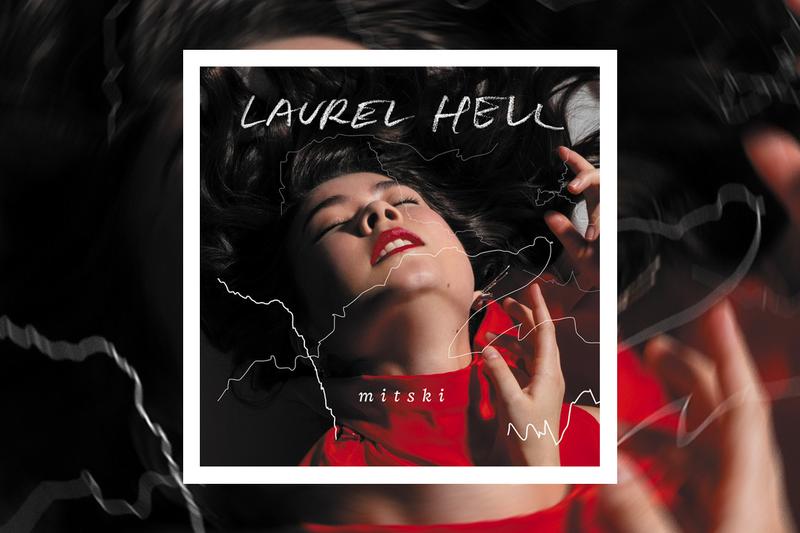Tune into a rundown of the new Mitski album “Laurel Hell.” PHOTO CREDIT: thegatorseye.com
On Feb. 4, Mitski released the genre-bending album, “Laurel Hell,” an album with a new-age feel but with 80s synths, a departure from her typical indie style.
Mitski, full name Mitsuki Laycock, has been coming out with music since 2012 and resonates with fans through covering topics such as mental health, the experience of womanhood as a Person of Color, and anxiety regarding approaching adulthood. “Laurel Hell,” represents how Mitski’s attitude toward some of these topics have matured with her as a person. The lighthearted vibe in some of these pieces show her making peace with the world as it is, and learning to find personal contentment within it.
“Valentine, Texas”: Mitski beckons us into the dark and we have no choice but to follow the path she lays before us. This song tells the story of a person numbed by dull, everyday life and begins with that numbness. Then, a swelling uptake in the music after a metaphor for the narrator’s dark side with shining, wet teeth.“Who will I be tonight?” she asks, not knowing the answer, but knowing enough to hide it. Mitski’s monster is the part of ourselves we know to be ashamed of and the rest of the album is spent fighting that shame.
“Working for the Knife”: Chains rattling, snares, a melody delicate for sounds it overlays. Adulthood can be painful when a hopeful kid grows up, enters the creative field of their choice, and works tirelessly only to be knocked back by the spinning wheel of criticism they need to pay bills. The creative process alone can be an act of self-imposed torture – as a livelihood, it takes a toll. Starving artists everywhere cut down their masterpieces according to the whims of others, and as they mourn parts of their craft, pressing forward still, they can sing “Working for the Knife,” in solidarity. All who truly love what they create will understand the sentiment of this song.
“Stay Soft”: The music video shows the singer watering a flower with her blood, symbolically sustaining something beautiful to the detriment of her wellbeing. It suggests one party involved had to be a constant source of comfort to the other. Realizing you cannot cushion someone else from their pain, Mitski disengages from doing that, resolving to open up her heart and to be her true self.
“Everyone”: An artist’s reflection on their road less traveled. It shares central themes as “Working For The Knife,” but whereas that song discusses her current feelings about the music industry, this one looks back on her years before success. “It didn’t want me yet,” she writes of the great void, comparing herself to a baby in a crib. It’s not up to her, deciding when to rest, but to a faceless hand. This could be referencing Mitski’s 2-year hiatus that began in 2019, during which she gained significant streaming popularity. Mitski went on hiatus because of discontent with a “supersaturated” industry, reported New Musical Express on Feb. 2.
“Heat Lightning”: What begins having the tense, ready-to-strike air of a lone assassin crossing a simmering desert, ends as a desperate vagabond seeking personal refuge from the expectations of the world, and constructions of their mind. A crafted persona melts into an honest declaration. After begging acceptance, she realizes vulnerability is an asset and is better off because of it despite shedding her tough exterior.
“The Only Heartbreaker”: This song takes blame and wears it like a crown. The relationship in which Mitski felt responsible for happiness on both sides, ends. A tongue-in-cheek response. Disagreeing with but embracing her ex’s narrative of the relationship, she assumes the “heartbreaker,” role to distance herself, taking criticisms in stride, and turning them into an anthem.
“Love Me More”: Whereas the last song covers Mitski’s wrongdoing, this voices misgivings. It possesses a fierce awareness of one’s own needs, represented through power ballad and upward swelling of Mitski’s meticulous guitar-work, seemingly refreshed in “Laurel Hell.”
“There’s Nothing Left Here For You”: This song is about coping with a lack of identity. Relationship over, no role to fulfill. It begins with purposelessness. Will the end result be another crafted image to fill this new stage? Or real authenticity?
“Should’ve Been Me”: Seeing her ex with someone who looks too much like herself, just “cleaner,” somehow. Whether cleanliness means she was already intimate with the ex and is now “soiled”, or if noting how mental illness makes one jaded and resultantly unreachable by those they care about, is up in the air.
“I Guess”: Haunting. You only realize when the song ends that it has moved you from one place to another. This is the final stage of mourning a love. Some lyrics of the last verse are “thank you,” meaning she recognizes this pain was a necessary evil regarding actualizing an identity.
“That’s Our Lamp”: Here, she is accepting rejection and the end. An amalgamation of the relief snippets we experience through the album truly appreciated in the finale. Taking an object that once belonged to both parties, and making peace with it, Mitski moves forward.
“Laurel Hell” displays Mitski’s personal growth as a person and artist as she toe-dips into styles of music previously foreign to her. Regardless of the change, nothing is spared of the deeply emotional content Mitski usually writes about. Fans are as enthralled as ever despite this shift in pace, and interestingly enough it came a little less than a month after the Weeknd’s release of “Dawn FM,” which similarly uses a lot of 80’s-esque synthy beats.




